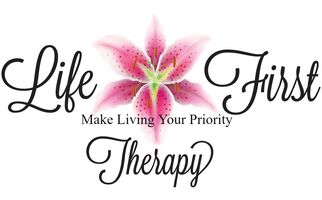|
By Guest Blogger: Chris Hassan
Sometimes, external pressures and major life events can drive a person to seek destructive coping mechanisms, which could increase the risk of developing a mental illness. Both substance abuse and anxiety can have serious consequences for the body, but you might be surprised to know that yoga can be an effective tool in recovery. Substance abuse attacks neurotransmitters in the brain. While a drug habit may start out as a race for dopamine, continued use through injection, inhalation or ingestion can cause dependence and even cycles of depression. Nervousness and tension from an encounter with addictive substances can have detrimental effects on the neck, shoulders and other muscles, as well as increase your risk of insomnia and other illnesses. The consequences can still affect the body even if a person achieves sobriety. Addiction recovery is a complicated journey but practicing yoga can assist with the process. Along with a series of health benefits, yoga has been found to ease anxiety by decreasing cortisol levels, the primary stress hormone. By listening to the body through calculated stretching, you can also achieve higher impulse control. Yoga’s success relies on developing an elevated sense of mindfulness. Focusing on breathing helps identify the areas that hold the most tension. The philosophy of yoga revolves around calming the mind and balancing the nervous system, which can serve as a catalyst for mental and physical healing. By using yoga as a supplemental therapy to traditional treatments, physical sensations are reintroduced to the body and natural stress responses are rewired. Practicing yoga can emphasize healthy coping skills and tolerance for discomfort, replacing self-medication through drugs and alcohol. Learn more about the benefits of yoga for addiction recovery with the accompanying infographic yoga-addiction-recovery.pdf. Chris Hassan is President and CEO of Symetria Health® — the country’s first comprehensive evidence-based opioid addiction treatment program, designed to deliver data-validated outcomes that outperform other treatments currently available. He has over 25 years of experience in the field of addiction treatment, is active on several national panels and corporate boards, while also serving as a Huffington Post contributor.
0 Comments
By Guest Blogger: Michelle Peterson
Recovering from an addiction is incredibly difficult. And, with so many recovery programs out there, how do you choose the right one for you? Art and music therapy are two types of programs that can help recovering addicts relieve stress and promote self-confidence. You can incorporate these supplemental activities into your recovery practice and walk away feeling like a new person. Here are a few different types of art and music therapies that can help you get through your addiction. Learning an instrument Learning how to play a musical instrument is incredibly difficult. It takes persistence, commitment and patience. When someone is recovering from an addiction, learning how to play guitar, drums or another instrument can help them stay focused and discover a whole new side of themselves. Sticking through lessons can teach them how to commit to recovery and to not relapse. They will also leave therapy with a sense of accomplishment and a new skill they can use to entertain family members and loved ones. Painting Painting is a type of art therapy that can come in many forms. Whether it’s watercolor, acrylic, or oils, painting is a wonderful way for those suffering with addiction to cope. Not only is painting a quiet, soothing activity, it allows an artist to bring out whatever emotions they’re dealing with onto the paper or canvas and leave it there. Because drugs and alcohol can dull a person’s emotions, painting can bring you back to yourself, little by little. Sculpting Another type of art therapy, sculpting allows addicts to reshape their lives while they make something out of nothing. Sculpting can bring stress relief and improve overall well-being. It’s a type of meditation, as sculpting can take hours on end. With sculpting, there are no right or wrong ways to make a piece of art, which is helpful to addicts as they can access their inner creativity and surprise themselves. Sculpting is something that anyone can try out and it appeals to a lot of different individuals. Who doesn’t want to take home with them a sculpture that they created? Dancing Dancing is a type of music therapy and form of self-expression that can help individuals recovering from addiction. The primary goal of this type of movement is to promote physical, emotional and mental health. By being able to express yourself openly and freely in a supportive environment, you can take steps to healing and confronting the demons of addiction. When it’s hard to express yourself with words, dancing is a great way to get rid of any feelings of self-doubt and other painful issues. Writing poetry It can be hard to express your feelings out loud when you’re going through addiction recovery. That’s why writing down your thoughts and emotions on paper is a great way to relieve stress, especially if written thoughts are transformed in poetry. This type of art therapy allows addicts to discover their creativity and tell their own story in a beautiful way. Poems are easy to keep, and if an addict is every experiencing self-doubt or weakness, they can re-read their poems and gain back their strength. If you need more than group therapy and a traditional rehabilitation program, add in art or music therapy to your recovery to help you get more in touch with your emotions and express yourself. Art and music therapy is also typically performed solo, so the individual doesn’t feel embarrassed speaking about their emotions in front of other addicts like in a therapy session. Art and music therapy provide addicts with a different opportunity to find solace and see what they’re made of. |
Archives
February 2021
About MeI am a loving and perceptive therapist. I helps professional women of color! I work collaboratively with my clients to build their self-confidence. We identify tools that are needed to build a career and live a life worth living! I listen quietly and attentively remembering details to tell truths that need to be spoken. Let's Connect |
|
CONTACT ME
Phone: 267-598-LIFE (5433) Email: [email protected] Mailing Address 2031 66th Ave, #14176 Philadelphia, PA 19138 |
If you are in a crisis, online therapy is not the best option for you.
Call the National Suicide Prevention Lifeline 1-800-273-8255 or text "988" |
Disclaimer: Please note, the information offered on this website is not, nor is it intended to be, therapy or psychological advice, nor does it constitute a client/therapist relationship. Please consult a physician for individual advice regarding your own personal health and well-being. Thank you.
© 2017-2024 Life First Therapy | ALL RIGHTS RESERVED.
© 2017-2024 Life First Therapy | ALL RIGHTS RESERVED.

 RSS Feed
RSS Feed
